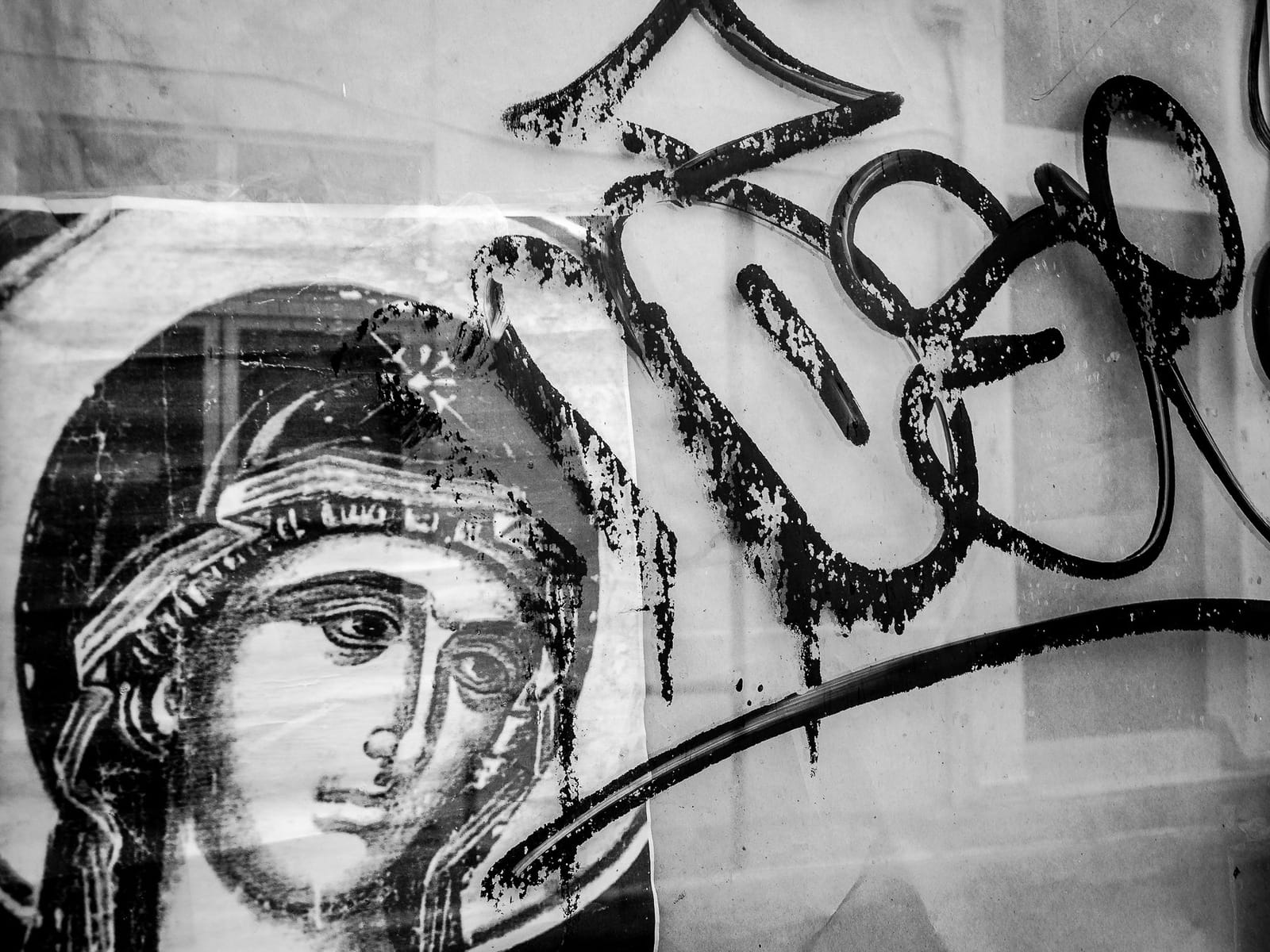Absolute stillness in Athens on Christmas morning. After a night of garbled dreams, I walked past shuttered storefronts covered with graffiti in search of my Christmas present: a pack of cigarettes after quitting for six months. The Greeks know how to smoke. In America we stand on cold sidewalks with shamed faces; here smokers luxuriate in a grey haze like it’s 1962. Rolling cigarettes is a family activity. Starbucks has a smoking section. I savored the familiar box in my palm, the sacrament of unwinding the cellophane and peeling back the gold foil, the warm raisin smell of tobacco and the cupping of a flame. How could this dramatic act of fire, smoke, and breath ever have become a mindless routine, let alone something I wanted to quit? Beneath a heat lamp at a café, I admired the pigeons while reading about the last days of Socrates. An ashtray and a complimentary pastry appeared on the table.
Psyche is the Greek word for breath, evidence of a graceful relationship between spirit and flesh until Socrates split the soul from the body, creating the ghost in the machine and leaving the mind to wonder: if God is so perfect and complete, why did He bother making this kind of world? (Because the divine must be expressed, said Plotinus.) I closed the book, lit another cigarette, and thought about my soul. But mostly I struggled to resist my telephone’s siren song of breaking news.
An old man whispered to his dog. A waitress touched up her lipstick in the mirror. The Parthenon floated upstairs. Upstairs. That’s how the chatty cab driver described the hills, and the slope towards the sea was downstairs. This seems like a wonderful way to look at the world: the city as a house. Pigeons pecked at the checkered tiles for flakes of pastry while across the Atlantic the next American president brayed about his television ratings and promised a nuclear arms race for the holidays.
I expected to spend my days in Greece researching ritual and considering the erosion of myth. I imagined tranquil afternoons in libraries and museums, my footsteps echoing through marble halls. But there is no escaping the world and I spent far too much time staring into screens instead of contemplating the history around me, unable to believe that a psychotic game show host would be allowed to command the most powerful office in the world. Although I should have known better, I half-expected the adults to enter the room at the eleventh hour and save us from ourselves.
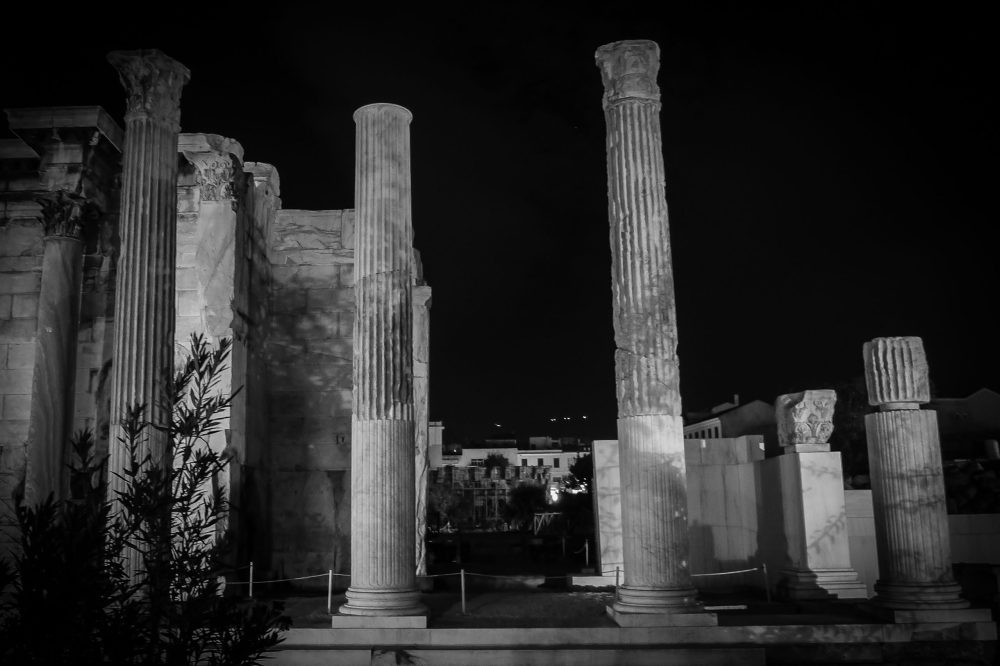
I stood before the ruins of the Agora and Parthenon, the foundations of democracy. Once again they were falling apart. The promise of liberalism is redshifting into tribalism, a grim cycle described by Plato when he walked among these shards of marble two thousand years ago: the endless swing between democracy and tyranny as determined by the distribution of wealth. Although it’s tempting to retreat into philosophical detachment, to cultivate a world-weary nihilism, I must believe that history moves upwards rather than in mindless circles.
Fifty years ago the historian Will Durant contemplated the slow march of change. “The mills of the gods grind exceedingly slow,” he wrote, “lest the mind of man should break under strain of endless transformations.” Yet I can feel my mind breaking.
Are the mills speeding up? Is history accelerating? My students often complain that life is passing too quickly, that too much seems to happen each day. “I wish we could go back to natural time,” one said. “No news or notifications, just waking up and falling asleep with the sun.” She is only sixteen years old.
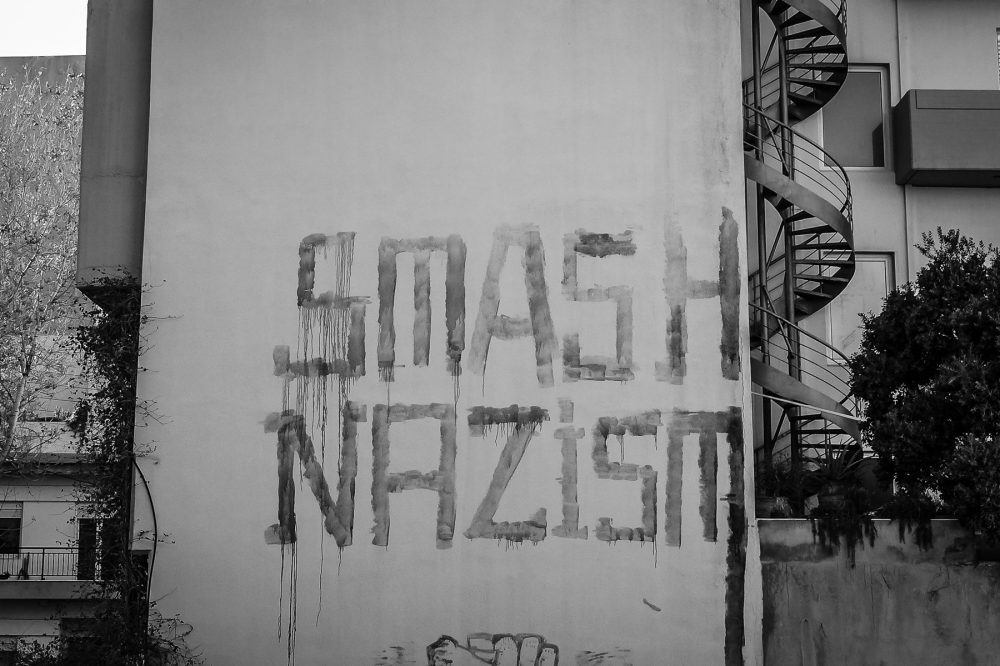
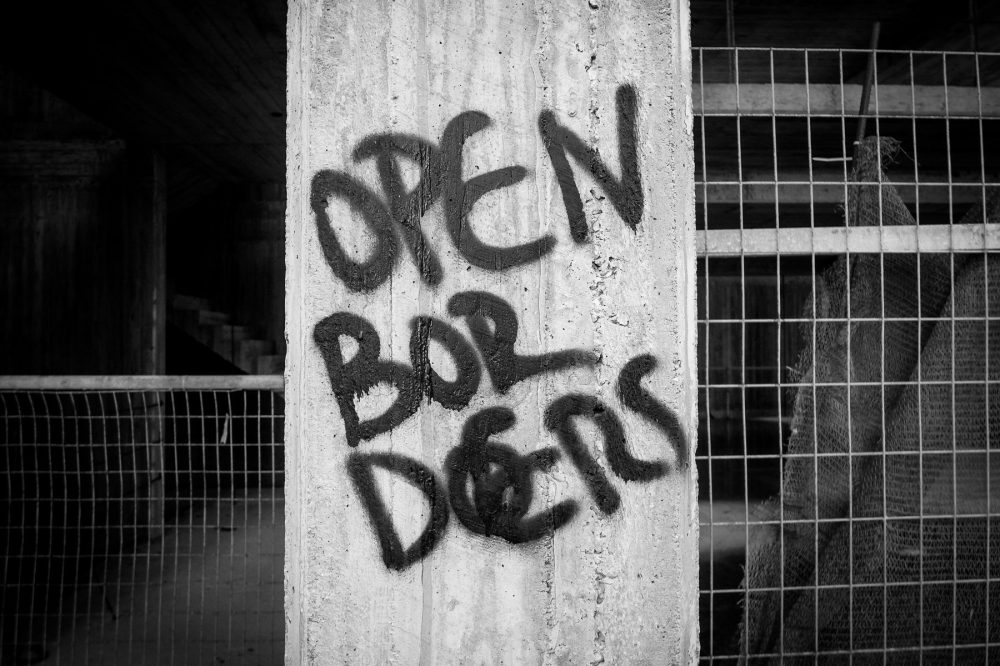
Hope was written across the walls of Athens and Heraklion, a jumble of spray-painted shrieks for anarchy and power to the people, for love and open borders: Destroy Fortress Europe. No borders. Immigration is not a crime. So much graffiti in Greece, covering its shutters, doors, and bricks—a reverberation of Vladimir Mayakovsky’s starry-eyed call to arms a century ago: “Artists and writers have the immediate duty to get hold of their pots of paint and, with their masterly brushes, to illuminate, to paint all the sides, foreheads, and chests of cities.” Also from Decree No. 1 on the Democratization of the Arts: “Let the streets be a feast of art for all. And if all this comes to pass…everyone who goes out into the street will grow to be a giant and in wisdom, contemplating beauty instead of the present-day streets with their billboards, where every page has been written on their signs by greed, the lust for mammon, calculated meanness and low obtuseness, all of which soil the soul and offend the eye.” But Plato’s pendulum swung the Bolshevik revolution hard towards tyranny. Mayakovsky shot himself at the age of 36 and twenty million died under Stalin. How will the next uprising survive this age of networked surveillance, agitprop warfare, and hoarded wealth?
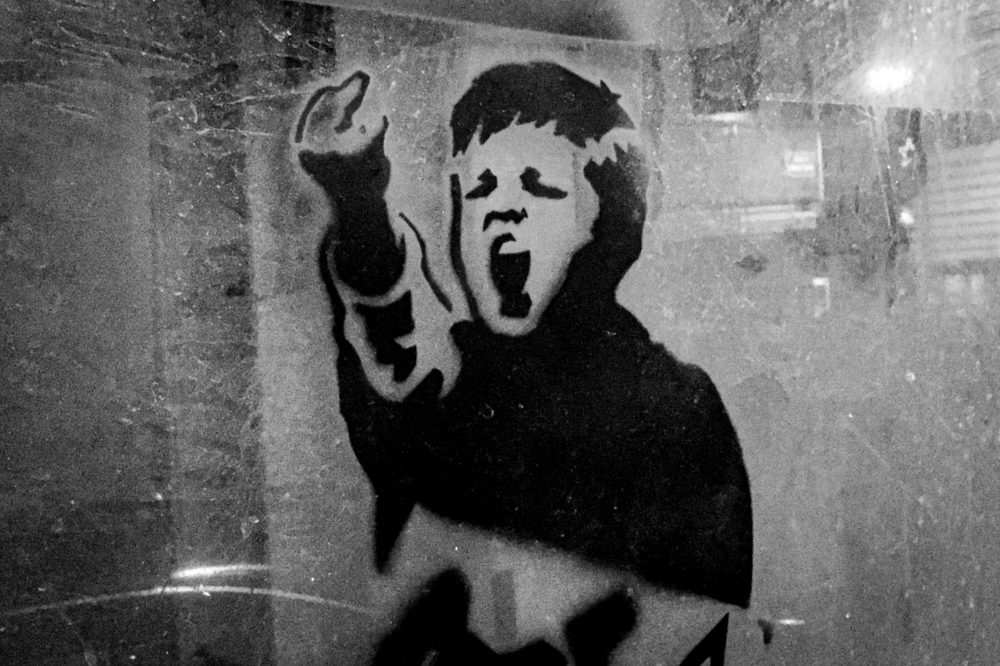
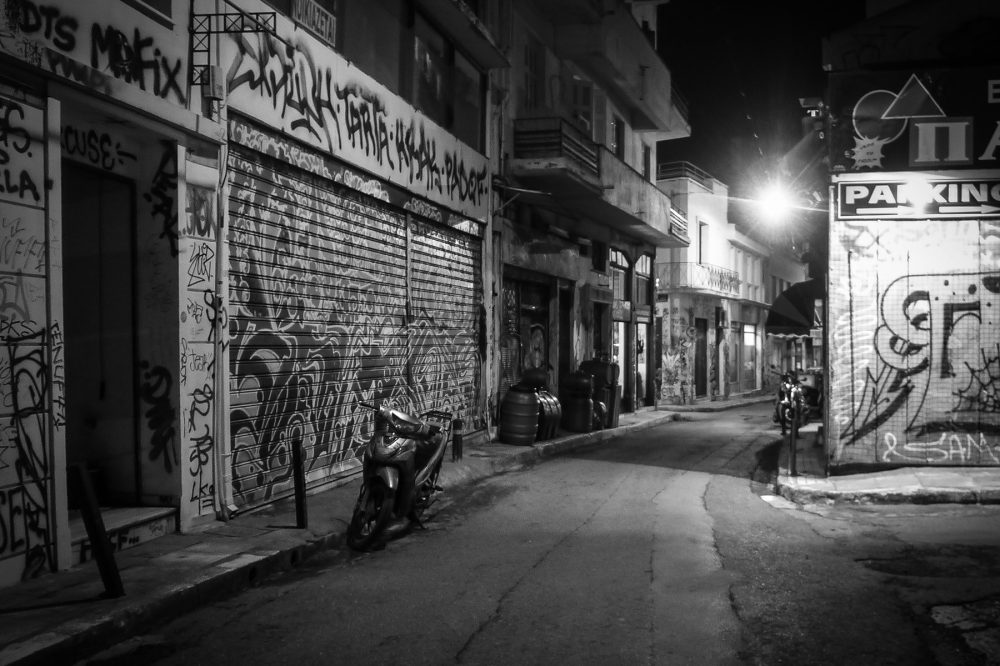
Politics at the Kafeneíon. The table started with three low voices and grew to fourteen loud ones, a loose confederation of Greek, French, Australian, German, and American. We discussed the world’s backslide into panicky jingoism rather than tackling the lunatic mythology of late capitalism. As an American, I felt the familiar sensation of being mortified by my country, the urge to apologize to everyone in advance. Some said this rise in nationalism was a blip, a minor rip in the fabric of democracy that could be easily mended. I stayed quiet and envied their optimism.
A voice in the haze ruminated about “the financial terrorism” that led to Greece’s economic crisis. An elegant old woman sipped her glass of ouzo, rolled a cigarette, and swiped away the political doomsaying. She had the watchful look of experience. “We will be okay,” she said. “Perhaps I am still naive, but I will always choose to be this way.”
After midnight a few slurry voices downshifted into the familiar language of conspiracy, the hushed tones that signal talk of the new world order, inside jobs, brainwashing, and coordinated attacks. Perhaps installing a raging jackass in the White House would shock the system, someone suggested. Maybe this will wake up a nation that had fallen asleep at the wheel, lulled by its cheap comforts and entertainments. (An echo of Juvenal’s lament from two thousand years ago: “Luxury, deadlier than any armed invader, lies like an incubus upon us still, avenging the world we brought to heel.”) But this argument is as cruel as it is juvenile. Certainly there is a better way to inspire civic engagement than flirting with fascism, lurching from one humiliation to the next, and allowing very real lives to be destroyed along the way. (Although history provides few examples here.) The party ended when somebody dropped a dog on the table, scattering empty glasses and ashtrays across the floor.
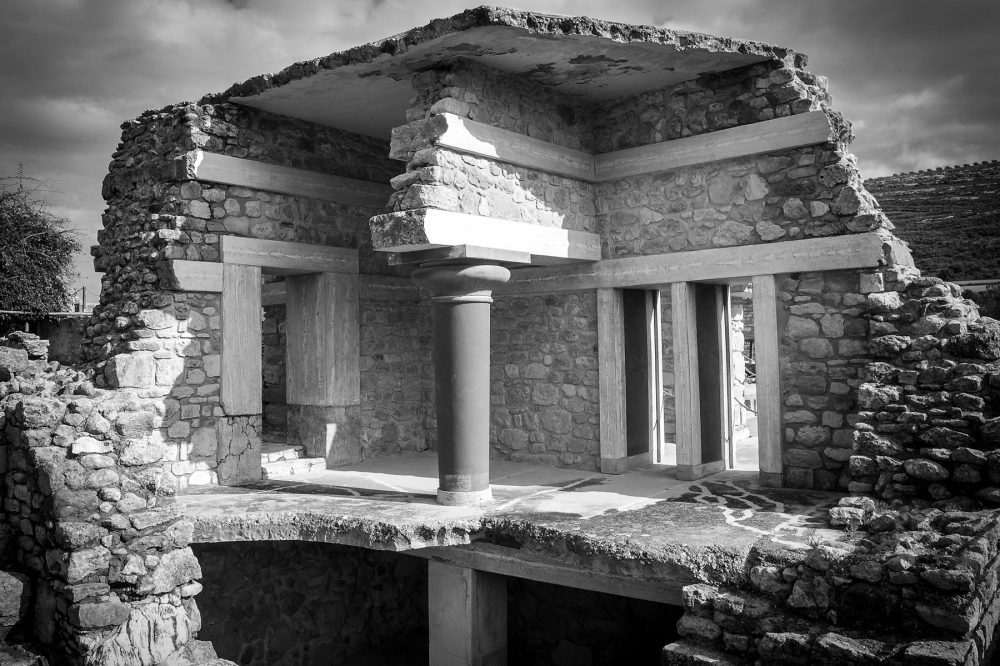
The 4000-year-old ruins of the palace at Knossos were a vivid reminder that civilizations disintegrate. I dutifully photographed the crumbling walls, mosaic fragments, and towering jars that once held olive oil, wine, and the remains of the dead. So many cups, plates, and blades on display. Although I knew these Minoan fragments of pottery and spears were the only surviving relics, that the clothes and scrolls had long since turned to dust, I could not shake the impression that ancient cultures cared only for dishware and war. I contemplated placards with phrases that fired the imagination: Dismembered Horse Skeleton. A Liberation Vessel. Somersaulting Over Upturned Swords. The Minor Pleasures of Daily Life. A 4000-year-old fresco shows men and women leaping over a bull, a ritual that held this culture together with notions of glory and duty, a reminder that we are unnatural beasts, capable of such cruelty—omnivorous predators who would devour the world were it not for our faith in rituals and codes.
The deceased were placed in a fetal position at the bottom of sarcophagi, symbolizing the return to the primeval womb. Postures of prayer and preparations for judgment decorated the jars, images of men on their knees before a beast on a throne. What is this hard-wired expectation—or fear— that we shall be judged for this life? This belief is as old as time, although perhaps it is slipping away.
What will take its place?
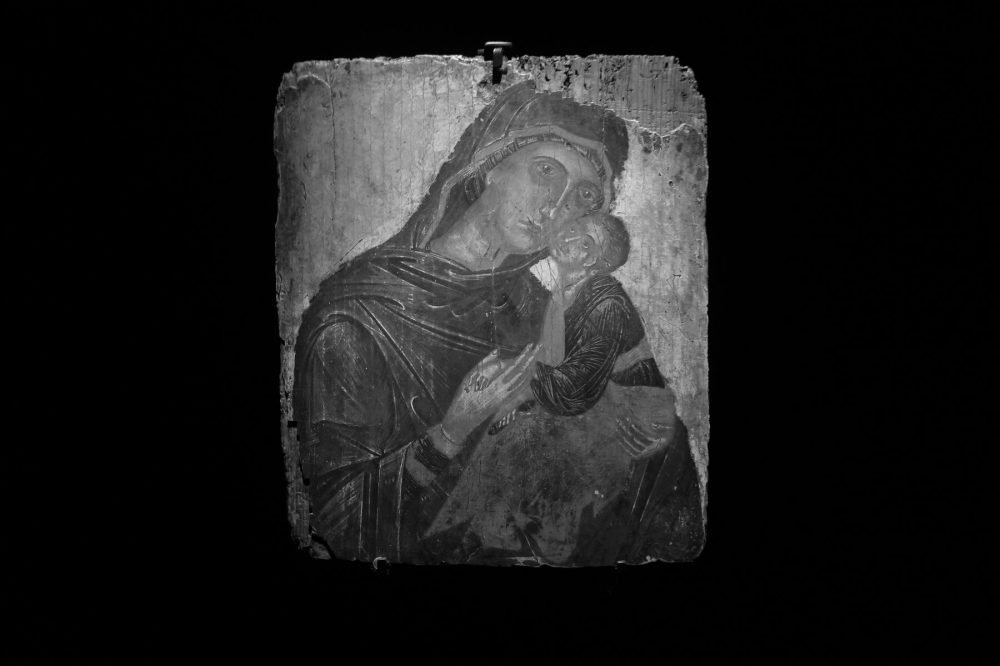
How do I worship? What do I believe? Sitting in the back of grand Orthodox churches, I thought about my departed parents and searched for religion. Sometimes I worry that if I pray, god will appear and judge me. There is an obvious conflict between my atheism and fear of god. But stranger things have lived together. There is no logic to the soul. I want to move beyond grief, a word that feels like a wall or tunnel without end. Why not devotion or grace? These words suggest a way forward and even if I’m not part of a spiritual tradition, the descriptions and paintings of the saints who sought salvation reassure me. Gazing at images of sacrifice, I imagined a new reformation of the church, one that keeps its majestic cathedrals, gilded icons, and liturgical tones—but dispenses with the priesthood, replaces the Bible with the otherworldliness of Origen, and opens its doors to anyone seeking communion with the sublime.
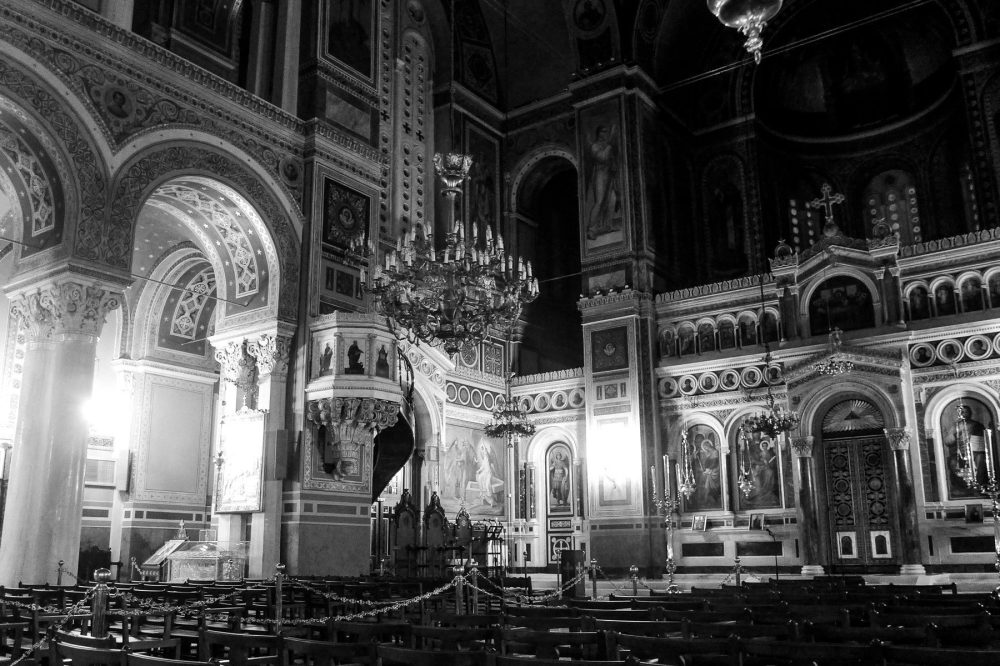
Walking the labyrinthine streets of Athens and Heraklion, I sensed another chord of grief: a deep-boned mourning for the loss of a semi-rational world, one which, while profoundly flawed, nonetheless maintained the illusion of guardians at the gate, a faith in messy yet steady progress towards dignity for all, and a promise that we would not be ruled by the whims of a megalomaniac determined to burrow into our psyche. Although the comparison is by no means direct, the recent triumph of fear and lunacy at the expense of reason feels not unlike the shock following the loss of a loved one: an event whose reverberations will not be understood for a long time.
When every statement from the White House brings to mind that chilling phrase from Camus—“the denial of other human beings”—and ecclesiastical cruelty becomes intertwined with a president’s vanity, nothing is certain except the old world will never return and a better one must be built quickly.
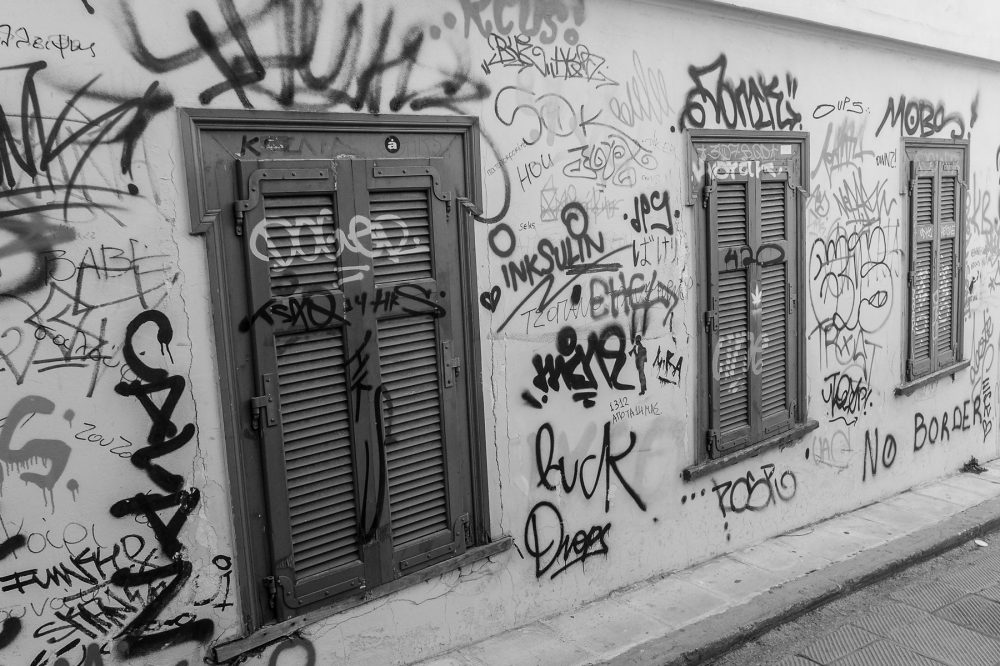
Returning to the ruins of the Agora, I think about the concept of elegant decay. Greece reminds me of New Orleans in a way, a place where tourists flock for history despite the local desire to remain present-tense and future-bound. More than its ancient columns and statuary, I will remember Athens and Heraklion for the writing on the walls. The graffiti splashed across the cradle of democracy felt appropriate now that our sacred institutions appear obscene while profane cries of resistance sound absolutely spiritual.
Further reading: Grief Is a Beast That Will Never Be Tamed, a mural installed in Heraklion with Candy Chang; The Rebel by Albert Camus; The Story of Philosophy by Will Durant; and Plotinus, who is gradually becoming my favorite philosopher.
